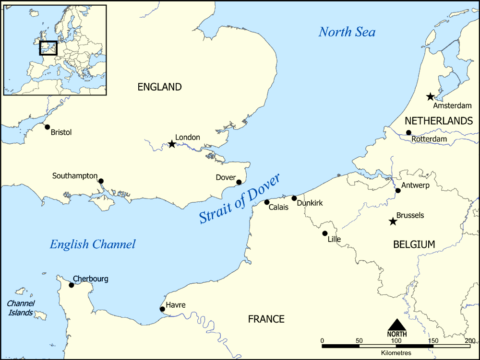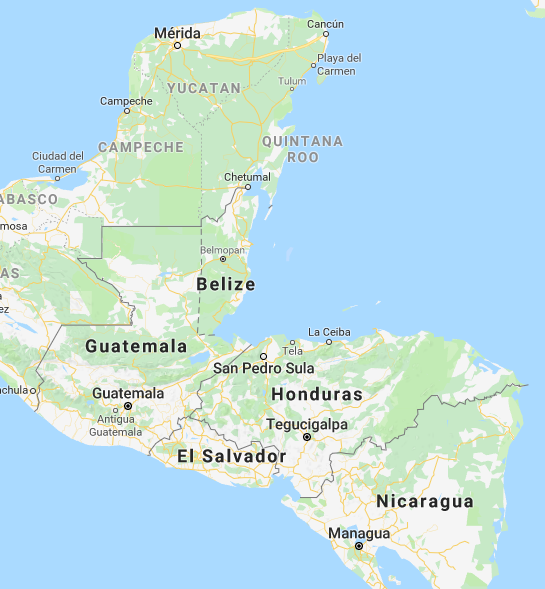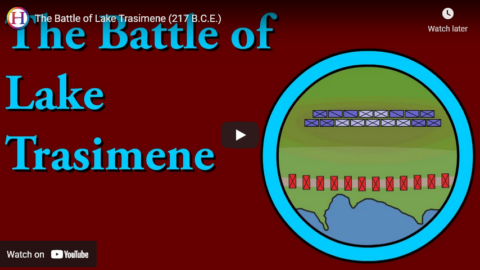It is not a simple question of regulation and laissez-faire. Regulation can result in an excellent service, better than what an unregulated service might have provided. London’s licensed taxi drivers are, in my experience, the best in the world, for example, and this is due to proper regulation. To obtain a license to operate, they have to master the Knowledge: learn the street plan of London — as higgledy-piggledy as that of any city in the world — not only in theory, as an abstract mental image, but in actual practice. This usually takes them three years, spent driving around the city, day in, day out. When finally they think that they have mastered it, they are examined — often by a retired policeman — and have to be able to say how they would get from A to B, or from C to D, not only by the shortest but also by the quickest route. Only then (and provided they have no police record) are they granted a license.
Obtaining the Knowledge is a formidable intellectual feat: indeed, neuroscientists have used it to demonstrate by brain scans differences between London taxi drivers and others in the possession of spatial knowledge and powers of orientation. And the result of the regulation requiring the Knowledge is that London taxi drivers, besides being small businessmen working largely on their own account and therefore committed to their profession, are generally intelligent, capable men. No doubt the advent of GPS will reduce the need for much of this effort, at least among unlicensed drivers, who were never required to have it anyway. The license was, and is, a guarantee of quality; and the point remains that regulation is not sometimes without benefit to the public.
What do the regulation of London taxi drivers and the success of the vaccination program have in common? I think that it is in the clarity, but also in the modesty, of their goals. The object of the regulation of taxi drivers, for example, is to produce a large cadre of drivers who provide an excellent public service — and the means to achieve this object are unmistakably and obviously connected to that goal. Any group comprising tens of thousands of human beings will contain some who fall below, even much below, the standard desired, but I know of no profession whose members more approximate its ideal. The drivers are justly proud of what they are. There have been no efforts to make saints, or even good people, of them; all that is required is that no ill be known of them and that they have the requisite knowledge. In 50 years of taking London taxis, I’ve never had a bad experience and have had innumerable good ones.
Theodore Dalrymple, “A Cure for Government Incompetence”, City Journal, 2021-08-30.
December 9, 2021
QotD: “The Knowledge” of London’s licensed cab drivers
December 8, 2021
Pandemic authoritarianism in the EU will be the death of Europe’s liberal traditions
In Spiked, Brendan O’Neill says we’re watching the “death of Europe” driven by the authoritarian instincts of government and EU leaders in thrall of public health officials:
Europe is on a precipice. It has marched, blindly, towards something very much resembling tyranny. Austria will shortly criminalise those who refuse the Covid vaccine. Germany looks set to follow. Ursula von der Leyen, president of the European Commission, is wondering out loud if every member state should do likewise and make offenders of those who reject this form of medication. In Italy you are deprived of your livelihood rather than your liberty if you say no to vaccination: the unvaxxed are not permitted to work. Anywhere. In Greece, everyone over the age of 60 must pay the government 100 euros for every month they remain unvaxxed. As if the Greek government, in cahoots with its masters in Brussels, had not immiserated Greek pensioners enough already.
Police in Rotterdam opened fire on people protesting against Covid restrictions. Three were seriously injured. Austrian cops have wielded batons and shields against the thousands who took to the streets of Vienna to say no to mandatory vaxxing. In Brussels, the black, bureaucratic heart of the EU project, water cannons and tear gas were unleashed upon citizens agitating against vaccine passes. The irony is almost too much: in the European quarter of Brussels, the very part of Europe in which the modern European sensibility was forged by politicians, experts and technocrats, ordinary people make a blow for freedom and the forces of this supposedly liberal new continent beat them down. Rarely has modern Europe’s bluster about “human rights” and “respect” been so savagely exposed.
What is happening in Europe right now is nothing short of terrifying. We are not merely witnessing another round of Covid restrictions. This isn’t just the introduction of another set of emergency measures that some people believe are necessary to stave off the latest Covid wave and the Omicron threat lurking on the horizon. No, we are living through a chilling overhaul of the entire relationship between the state and the individual, with the state empowered to such an extraordinary degree that it can now instruct its citizens on what to inject into their bodies, and the individual so politically emaciated, so denuded of rights, that he no longer even enjoys sovereignty over himself, over that tiny part of the world that is his own body and mind. We are witnessing the violent death of European liberalism and the birth pangs of a new and deeply authoritarian era.
Many seem not to recognise how serious a development mandatory vaccination is. Even those of us who are pro-vaccination, who have been happily vaxxed against Covid-19, should look with nothing less than horror upon the proposal that it should be an offence not to be vaccinated; that a citizen should be fined thousands upon thousands of euros if he refuses this treatment. One of the ideas being discussed in Austria ahead of its mandatory vax law that will be introduced in February is that citizens who refuse vaccination will be summoned to a local court. If they ignore the summons twice they will face a fine of 3,600 euros. If they continue ignoring the state’s demand that they receive medical treatment that they do not want, they’ll be fined 7,200 euros. These are life-ruining fines. There is no talk – yet – of imprisoning people who reject the vaccine, but the Austrian state is making it crystal clear that it will happily wield its power to propel the unvaxxed into destitution.
[…]
This spells the end of freedom as we know it. Bodily autonomy is the foundation stone of self-government, and self-government is the thing that gives freedom meaning. If we do not enjoy sovereignty over our minds and our flesh, then we are not free in any meaningful way. And it won’t just be the minority of people who feel forced to receive the vaccine whose freedom will suffer under this new regime of state power over people’s bloodstreams and muscles and flesh – everyone’s freedom will. The state diktat determining that only those who receive a certain form of medical treatment will get to enjoy freedom will make freedom itself contingent upon doing what the state wants you to. Even the vaxxed will not be truly free people in this world. Rather, we will be the beneficiaries of state favour, the enjoyers of small privileges, in return for our agreeing to receive an injection. We will have a license from on high to go about our daily lives. And we will know that that license could swiftly be revoked if we refuse medical treatment in the future. The redefinition of “freedom”, the making of liberty contingent upon submission to medicine, will throttle the rights of all of us – vaxxed and unvaxxed alike.
Imperial Japan – A Spy Comedy? – WW2 – Spies & Ties 11
World War Two
Published 7 Dec 2021Japanese spy rings were somewhat successful up until December 1941, but after Pearl Harbor, Japanese intelligence remains only a shell of its former self.
(more…)
What if the refugee flow was crossing the Channel the opposite way?
In The Critic, Joel Rodrigues considers what the media narrative would say if the constant stream of migrants from the EU to Britain was reversed, as all the major media outlets predicted would happen if Brexit went through:

This map shows the location of the Strait of Dover between England and France, and part of the English Channel and the North Sea. It also shows nearby towns such as Dover, Calais, and Dunkirk.
Image created by NormanEinstein via Wikimedia Commons.
Imagine “tent” cities on the Kent coast, similar to “the Jungle” that existed in Calais up until 2016. These camps are the type of camps that the Remain campaign (wrongly) warned would spring up if Britain voted to leave the EU, as part of their Project Fear campaign. The tent cities are full of migrants, hoping to reach the French coast and the “sunlit uplands” of the European Union.
The camps are filthy, riddled with violent crime, and it is here that people traffickers sell spaces on dinghies to cross the channel for thousands of pounds a ticket. The British police and immigration services are aware of undocumented people living in squalor in the camps, but largely do nothing.
Occasionally a camp is cleared to placate the locals, but it quickly springs up somewhere else. The British government make no effort to document, accommodate or process the migrants living in appalling conditions on its territory. Instead, it blames the “pull factor of the EU’s single market”, saying that many of these migrants have family in France and want to live in a French or German speaking society. A junior British minister suggests that the black market economies in the EU are also a pull factor, and that there are a “lack of safe asylum routes” into the EU.
People smugglers continue operating from the British coast, and the migrant camps expand. Dinghies are now launched daily from the UK towards the continent. Police are aware of the launches, but do nothing. The RNLI and Royal Navy escort these flimsy boats until they are in EU waters, despite their not being seaworthy. Thousands succeed in making the crossing.
Then, tragedy strikes when a boat sinks. Statements are released from the British and French governments lamenting the loss of life. Trying to find a solution, Emmanuel Macron writes a letter to Boris Johnson urging increased collaboration, with joint patrols if necessary, to prevent a repeat of the tragedy.
The British government issue a response claiming that the perfectly conciliatory letter is in fact unacceptable, a “threat to British sovereignty”, and that France is uninvited from crisis talks. British media later reports that in a meeting with some of his advisors, Boris Johnson branded Emmanuel Macron as “a clown in charge of a circus”.
Imagine the media commentary and narrative in the UK surrounding such a situation, especially post-Brexit.
“Migrants die fleeing racist, Brexit-ridden, plague island,” says an op-ed in the Guardian. The comments are largely agreed that Boris Johnson is personally responsible for each of their deaths.
“UK condemned as using migrants to destabilise the EU’s single market,” reports the BBC. Parallels are also drawn in The Times between Boris Johnson and Belarus’ Lukashenko. There are mass demonstrations outside Parliament as the crisis worsens.
One can imagine the EU Commission swiftly and publicly denouncing the UK and drawing up sanctions. The Labour party would likely call it a national scandal, and demand resignations, as well as accusing the government of taking a hardline stance as cynical electioneering.
I searched for public domain or Creative Commons images of the English Channel migrant crisis, but came up surprisingly empty, hence the generic map to illustrate this post. I had expected to be inundated with lots of heart-rending images of desperate refugees, but not this time…
SA80 History: The Pre-Production XL85 and XL86
Forgotten Weapons
Published 17 May 2017Armament Research Services (ARES) is a specialist technical intelligence consultancy, offering expertise and analysis to a range of government and non-government entities in the arms and munitions field. For detailed photos of the guns in this video, don’t miss the ARES companion blog post:
http://armamentresearch.com/british-e…
The SA80 saga continues today with the final pre-production versions of the L85A1 and L86A1, although at this point they still both carry XL designations, as they were not yet formally adopted weapons. In these weapons we can see a couple last distinctive mechanical changes, but perhaps more importantly by this time the worker morale at RSAF Enfield was thoroughly in the tank. It had become well known that the factory complex was going to be taken public or sold outright, and it was widely expected that Enfield would be shut down as a result. A new facility would be built in Nottingham, but none of the rank and file staff expected to transfer. They would be laid off, and they knew it. Not surprisingly, quality control suffered as a result.
As for the guns themselves, the first distinctive visible improvement was in the magazine well. In the XL70 weapons, the bottom half of the magazine well had been simple welded onto the bottom of the lower receiver, in order to retain the easy stamping of that element. On these guns, that have been replaced by a separate box which encompassed the magazine and was spot welded into the lower receiver. This change in construction method allow the magazine well to be much more precisely located in the receiver, and then fixed in place without the risk of warping the thin sheet metal of the lower receiver – while still retaining the simple stamping of that lower.
The other visible change was to the Light Support Weapon, and it consisted of a long “girder” support added below the barrel. This was intended to mount the bipod onto, in the hopes of resolving the long-running problem of split groups in the LSW. This was a problem in which the first round of a burst would hit substantially low and left relative to the rest of the burst. While the LSW was a quite accurate weapon in semiautomatic mode, this split group problem was a substantial detriment to its effectiveness as a proper support weapon.
http://www.patreon.com/ForgottenWeapons
Cool Forgotten Weapons merch! http://shop.bbtv.com/collections/forg…
If you enjoy Forgotten Weapons, check out its sister channel, InRangeTV! http://www.youtube.com/InRangeTVShow
December 7, 2021
Kokoda Trail: D-by-D Recap 01
World War Two
Published 6 Dec 2021For the past months, we have continuously mentioned the fighting on the Kokoda Track, but it was often a mere footnote next to the colossal battles happening throughout the world. Today, we give you a unique recap of all that’s been going on in this remote theater of war.
(more…)
How are things going in Honduras?
For those not following the Honduran experiment with ZEDEs (las Zonas de Empleo y Desarrollo Económico — Zones for Employment and Economic Development) also known as “charter cities” or “model cities”, Scott Alexander provides a handy summary of the situation in the wake of the recent Honduran elections:
The socialist opposition has won Honduras’ election and pledges to fight against charter cities there. “Immediately upon assuming the presidency, we are going to send the National Congress an initiative for the repeal of the ZEDE law,” incoming president Xiomara Castro said.
This was what everyone was afraid of. But the last party tried pretty hard to protect ZEDEs from trigger-happy successors, and the constitution currently says that the only way to get rid of them is to win two consecutive 2/3 votes to do so, then give the existing projects ten years to wind down.
Can the socialists get a 2/3 majority? Wikipedia predicts the incoming Honduran Congress will look like this:
Liberty and Refoundation (the socialists) will probably enter into a coalition with the Savior Party and have 65/128 seats for a bare majority. They need 86 votes for a 2/3 majority, which in theory they can get if the Liberal Party agrees. The Liberal Party seems centrist and hard to pin down, but this article includes the following great quote:
“The Liberal Party opposes the ZEDEs because, above all, they undercut our national sovereignty, and because we don’t want them to become hideouts for extraditable criminals,” said [Liberal Party leader Yani] Rosenthal, who served a three-year prison sentence in the United States for money laundering and participating in a criminal scheme with the Los Cachiros cartel.
Rosenthal kind of goes back and forth elsewhere, but in the end I think he’ll vote with the socialists on this. Still, there’s some speculation that his party might not vote as a bloc, and even a few defectors would be enough to prevent a supermajority.
In theory, even if the socialists win two consecutive votes, they have to give the projects ten years to wind down. Ten years is forever in politics, and probably before then the capitalists will get back into power and say never mind, everyone can keep doing what they’re doing. The socialists are aware of this and say that their supplementary strategy is to have everything about the ZEDE law declared unconstitutional.
This should be a hard sell, because ZEDEs are a constitutional amendment, plus the current Supreme Court explicitly ruled a few years ago that they were constitutional. But apparently the Honduran Supreme Court can declare constitutional amendments unconstitutional if it really wants. And the new government will get to appoint a new Supreme Court in two years, and although the exact process is complicated, they may be able to get people who agree with them on this.
Also, incoming president Castro is married to Manuel Zelaya, a former president who tried to pull an Andrew Jackson after the Supreme Court ordered him to stop holding an illegal referendum to change term limits in his favor. He ordered the military to hold the referendum anyway, and was only ousted after the military couped him instead. So this is not exactly a family known for their deep respect for the exact wordings of laws or court rulings (not that anyone in Honduras has really excelled on that front). See further speculation eg here and here. And here’s Mark Lutter from Charter Cities Institute on the elections and the future.
The Byzantine Army, Dark To Golden Age
Epimetheus
Published 22 Mar 2019The Byzantine army, Dark to Golden age
This video was sponsored by Skillshare
Sources
Romano-Byzantine armies 4th-9th Centuries (David Nicolle)
Larousse Encyclopedia of Ancient and Medieval History (Marcel Dunan)
The Late Roman Infantryman (Simon MacDowall)
Byzantium Beyond the Golden Gate
Fall of the West (John Lambshead)
The Late Roman Cavalryman (Simon MacDowall)Tags:
Byzantine history, Byzantine, Byzantine documentary, Eastern Roman, Byzantine army, ancient history, Byzantine Cataphract, Byzantine Roman, history, Bulgaria Byzantium, Byzantine military, Byzantine legion, Byzantine empire, fall Byzantine, ancient, Rome, Constantinople, Byzantine empire documentary, crash course Byzantine empire, Byzantium, Byzantine army structure, Byzantine vs Roman, theme system, theme Byzantine, Roman tactics, Byzantine tactics, eastern Roman empire
From the comments:
Epimetheus
2 years ago (edited)
Notes/additional info:1. Should the empire be called Byzantine, Roman or Greek? I see people arguing for each of these in the comments and there is merit to each of these; but it is important to note that they called themselves Roman, they were majority Greek in population and language spoken, and the term Byzantine is useful in differentiating the time period and has been colloquially used for a long time (although not during the empire) Being a reference to the earlier name of Byzantium for the city of Constantinople.
2. When I refer to “native troops” this includes many other ethnic groups living within the empire, notably the Armenians who lived in Anatolia for hundreds of years and had assimilated in many ways but maintained different views on aspects of the Christian faith which was the most striking differentiating factor between them and the rest of the population of the empire.
3. The Strategos and Domestikos label should be switched on the captions at 6 mins 17 secs in. A Strategos led a Thema(ta) and a Domestikos led a Tagma(ta). Unfortunately I switched those by accident and stared at the screen for a while and did not notice that … sorry guys ;(
4. The Varangian Guard was a personal bodyguard unit to the emperor which are pretty cool, they were mostly comprised of Norsemen (Scandinavians), Rus and Saxons. They are the unit I refer to when I mention a Scandinavian unit.
5. The coolest unit (in my opinion) that I did not mention was the Akritai which were kinda like the Cossacks in that they were a loosely controlled border guard on the eastern side of the empire; and were the subject of much folklore and poems and such.
Sarah Hoyt on the nonsense of so many pandemic measures
Posting at Instapundit, Sarah Hoyt lists some of the many, many poor and even counter-productive public-health-theatre measures most western governments have been indulging in since the beginning of 2020:
Let’s say you’re one of those insane people who dismissed the low numbers of death/serious illness aboard the Diamond Princess because apparently people on cruise ships have “top quality medical care” (Coo-ey! Is the sky made of candy floss in your world?) in what world — even a candy floss sky one — did it make sense to close local grocery stores but keep Walmart open? In what world did it make sense to direct flow in stores so everyone crammed in through the same door, and everyone walked the same path (thereby a crowded/grimy, etc. path)? In what world did reducing hours of stores make sense? In what world did it make sense to wear a mask to your table then remove it to eat? (Are you less contagious when sitting?) In what world did curfews make sense? In what world did mask mandates outside in botanic gardens and zoos make sense? In what world did it make sense that you were hectored for getting out and driving around, while remaining your car?
In what world did the government stomp on every — no matter how crackpot or inocuous — rumored treatment? In what world, despite all studies to the contrary, do two layers of thin fabric stave off viral infection? In what world are doctors and nurses laid off by the thousands during a supposed pandemic? And finally in what world does it make any sense that a completely ineffective — if not (the numbers are not trustworthy in the sense that we can’t trust anything from collection to reporting, but in the UK there are indications that way) counterproductive — vaccine is being forced on the population by government mandate?
The deaths of so many people — thanks to dodgy statistical reporting and frequent moving-the-goalpost sleights of hand we may not know exactly how many — are tragic, but the deliberate destruction of public trust in our governments, healthcare systems, and media reporting will continue for a long, long time to come. The Wuhan Coronavirus has not been the civilization-wrecker we were all told to fear, but the breakdown in trust will make us all more vulnerable the next time a serious disease strikes. Trust is earned, slowly, and rebuilding lost trust will be a much slower process.
The Oberg Color Film Footage of Pearl Harbor – December 7, 1941
midway512
Published 7 Dec 2018This short documentary tells the story of Harold & Eda Oberg, and the film footage they recorded of the Pearl Harbor attack on December 7, 1941. The couple captured shots during and after the attack on Hickam Army Airfield.
QotD: The decline of class distinctions in Britain
After 1918 there began to appear something that had never existed in England before: people of indeterminate social class. In 1910 every human being in these islands could be “placed” in an instant by his clothes, manners and accent. That is no longer the case. Above all, it is not the case in the new townships that have developed as a result of cheap motor cars and the southward shift of industry. The place to look for the germs of the future England is in the light-industry areas and along the arterial roads. In Slough, Dagenham, Barnet, Letchworth, Hayes – everywhere, indeed, on the outskirts of great towns – the old pattern is gradually changing into something new. In those vast new wildernesses of glass and brick the sharp distinctions of the older kind of town, with its slums and mansions, or of the country, with its manor-houses and squalid cottages, no longer exist. There are wide gradations of income, but it is the same kind of life that is being lived at different levels, in labour-saving flats or council houses, along the concrete roads and in the naked democracy of the swimming-pools. It is a rather restless, cultureless life, centring round tinned food, Picture Post, the radio and the internal combustion engine. It is a civilization in which children grow up with an intimate knowledge of magnetoes and in complete ignorance of the Bible. To that civilization belong the people who are most at home in and most definitely of the modern world, the technicians and the higher-paid skilled workers, the airmen and their mechanics, the radio experts, film producers, popular journalists and industrial chemists. They are the indeterminate stratum at which the older class distinctions are beginning to break down.
This war, unless we are defeated, will wipe out most of the existing class privileges. There are every day fewer people who wish them to continue. Nor need we fear that as the pattern changes life in England will lose its peculiar flavour. The new red cities of Greater London are crude enough, but these things are only the rash that accompanies a change. In whatever shape England emerges from the war it will be deeply tinged with the characteristics that I have spoken of earlier. The intellectuals who hope to see it Russianized or Germanized will be disappointed. The gentleness, the hypocrisy, the thoughtlessness, the reverence for law and the hatred of uniforms will remain, along with the suet puddings and the misty skies. It needs some very great disaster, such as prolonged subjugation by a foreign enemy, to destroy a national culture. The Stock Exchange will be pulled down, the horse plough will give way to the tractor, the country houses will be turned into children’s holiday camps, the Eton and Harrow match will be forgotten, but England will still be England, an everlasting animal stretching into the future and the past, and, like all living things, having the power to change out of recognition and yet remain the same.
George Orwell, “The Lion And The Unicorn: Socialism and the English Genius”, 1941-02-19.
December 6, 2021
The Battle of Lake Trasimene (217 B.C.E.)
Historia Civilis
Published 22 Jun 2015Patreon | http://historiacivilis.com/patreon
Donate | http://historiacivilis.com/donate
Merch | http://historiacivilis.com/merch
Twitter | http://historiacivilis.com/twitter
Website | http://historiacivilis.comMusic is Beethoven’s “Sonata No. 07 in D Major, Op. 10 No. 3” – I. Presto, performed by Daniel Veesey.
QotD: Modern “Canadian culture” is a vast vanity press operation funded with lots of government money
From a distance, it is beginning to look as if Canada does not have a specific culture. No one is buying books, no one is watching television, no one is watching or listening to the CBC. People trail through galleries sometimes, and at the top of the investment tree, people buy art. But not because they love it, they buy it because it lends them status.
CanCon is a heavy lift at the best of times, being close neighbors to that hulking great monster south of us which is the most creative culture on earth. That is why we spend billions every year to prop up our creators, our artists, who we love.
Except we don’t.
Film salaries are funded up to 50%, books, 30%, news media 60%, and yet … no one is watching, reading, or listening. It is like a giant vanity project which various foreign appointees can brandish in foreign capitals.
Last month I traced the sales of this year’s Canadian literary award winners and I suppose “best-sellers”. Their sales on Amazon, hardcover, soft cover and digital ranged from 4 books to 33 books per month, incomes hovering in the three figures. (Amazon accounts for roughly 70% of sales.) This during summer reading months where Canadians are at their lake shacks from coast to coast reading one would hope about themselves, the world they live in, and well … just curiosity.
Equally looking at the viewer and listener stats for the CBC, our national behemoth, which eats up $1.5 billion annually, and which amounts to 50% of the media dollars spent, is equally disheartening. The state spends another $600 million supporting once-successful media because “internet”.
CBC television is watched by 3.9% of Canadians and only .8% watch CBC News. Again, half of all media dollars, half. Half is spent engaging less than 4% of Canadians.
CBC radio is considered reasonably good, and is listened to despite the almost vindictive calling out of anyone who disagrees with their hard socialist stance. Despite every conceivable advantage, advertising on the CBC dropped 20% during the pandemic.
In fact, they are so disliked that CBC is hiring “close protection security” for the next two years. They are so disliked, they have turned off commenting on their various programs. They are so disliked that there is a brand of coffee called “Defund the CBC”. This isn’t passive ignoring, this is active dislike to the point of needing bodyguards.
Why?
Because our media show us Canadians as racist, stupid, sexist, stupid, stupid and more stupid. And while they are at it, shallow and violent.
That is the real reason, and the only reason CanCon is dying. They hate us.
Elizabeth Nickson, “Canadian Culture on the Ropes”, Elizabeth Nickson, 2021-09-01.
December 5, 2021
Axis Armies Facing Starvation – WW2 – 171 – December 4, 1942
World War Two
Published 4 Dec 2021The Soviets have launched offensives on the entire eastern front and by now hundreds of thousands of men are surrounded at Stalingrad. The Japanese win a battle at sea, but are losing a war of attrition.
(more…)











